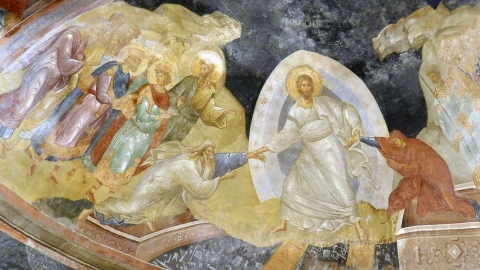A New Encyclical by Pope Francis Announced for October 3

Basilique Saint-François à Assise
The director of the Holy See’s press room delivered the information last Saturday, September 5: Pope Francis will travel to Assisi to pray at the Poverello’s tomb on the eve of his feast. He will sign his new encyclical after celebrating Mass.
The title of the third encyclical of the pontificate is already known: “All Brothers.” It is a quotation from the Admonitions of St. Francis of Assisi (6:1). The text in Italian reads as follows: “Guardiamo con attenzione, fratelli tutti, il buon pastore che per salvare le sue pecore (cf. Jn 10, 11; He 12, 2) sostenne la passione della croce.” The site of the Order of Friars Minor (OFM) translates it as: Consider, brethren, the good Shepherd: to save his sheep, he suffered the Passion and the Cross.
The theme of the encyclical will be—unsurprisingly—about human brotherhood and social friendship. Since the signing of the Document on Human Fraternity for World Peace and Living Together on February 4, 2019 in Abu Dhabi, by the Pope and the Grand Imam of Cairo Al-Azhar University, Ahmed el-Tayeb, the theme has been haunting the magisterium of Francis.
The fact that the encyclical is to be signed at the end of the “time of creation,” which began last September 1 and for which the Pope delivered a message, shows that “integral” ecology will also be at the heart of the encyclical. It is expected that the Amazon will also occupy a prominent place.
Unfortunately, it is feared that the defects found in both the Laudato si’ encyclical and in the Document on Human Fraternity will be put forward again, and that the serious reservations which have been raised against them would not be re-stated.
Since Laudato si’, papal thought has not come out of a millenarian, pelagian utopia.
Millennialist, because it dreams of an impossible restoration of nature wounded by original sin. Doesn’t the Pope’s last message, of September 1, say that “the Jubilee is a time to repair the original harmony of creation”?
Pelagian, because the “conversion” that leads to this restoration is conceived without God’s help. How to consider—for all the inhabitants of the globe to whom this encyclical is addressed—a “civilization of love,” a “universal brotherhood,” or a “new synthesis,” without grace?
It means ultimately forgetting the universal Kingdom of Christ, alone capable of restoring the wounded man, of giving him divine charity for himself and in his dealings with others, and preserving in him care for the respect of creation.
Source : Vatican.news - FSSPX.Actualités
Illustration : Mongolo1984 / CC BY-SA (https://creativecommons.org/licenses/by-sa/4.0)





